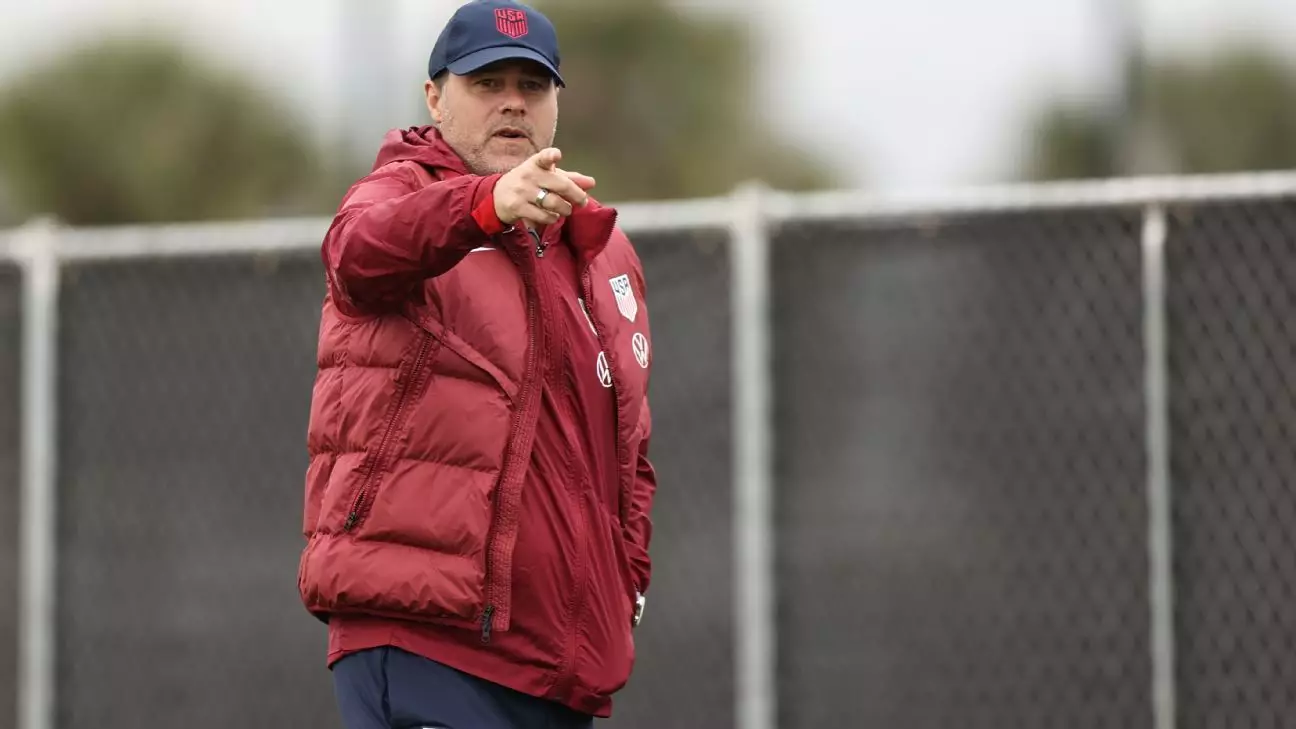As the soccer landscape evolves, few figures represent the potential for transformational change like Mauricio Pochettino. The newly appointed head coach of the United States men’s national team (USMNT) is embarking on an ambitious journey to reshape the way Americans perceive their soccer talent. Pochettino’s assertion that American players can compete with soccer powerhouses such as Spain and Argentina highlights both an opportunity and an expectation. He emphasizes the necessity for a mindset shift, calling on his players to embrace a more self-assured demeanor on the pitch.
According to Pochettino, the gap between the United States and some of the world’s elite teams still exists but is diminishing. “We need to be a little more arrogant in our belief,” he asserted, indicating that instilling confidence is paramount if the USMNT is to thrive on the global stage. With the 2026 World Cup on the horizon, Pochettino’s vision not only revolves around technical prowess but also a psychological readiness to conquer the challenges ahead.
The Road to 2026: Strategy and Mentality
One significant advantage for the United States as the 2026 World Cup host is the absence of qualifying matches. However, Pochettino stresses that this privilege should not translate into complacency. Instead, the focus will be on treating every game as a vital opportunity for growth, demanding a mentality characterized by aggression and proactivity. “Our principal objective is possession and evolving ways to maintain it while being aggressive and focused on scoring,” he explained. This duality of possession and offensive aggression exemplifies the modern soccer philosophy that values dynamic play.
Pochettino’s philosophy extends beyond mere tactics; it is about creating a holistic approach that fosters a balanced team. His insistence on high demands reflects a commitment to developing players who not only understand the game’s technical aspects but also embody the competitive spirit necessary for international challenges. “If you want to have a very balanced team in possession and out of possession you need to be very demanding on both sides,” he declared, underscoring his rigorous coaching style.
In trying to build a formidable team, Pochettino highlights a critical aspect—the profound emotional investment that Argentine players demonstrate in their sport. He differentiates the American mentality from that of players in his native Argentina, noting how a strong emotional response to victory and defeat molds players’ identities. “When you lose a game, you cry; when you lose a ball, you feel the same,” he shared, emphasizing the depth of commitment that comes from defending one’s national identity. Such authenticity in feeling can be a powerful catalyst for improvement, and Pochettino aims to cultivate that fervor within his squad.
He raises intriguing thoughts on national pride, suggesting that players must channel their emotions when they don the national colors. The passionate connection to the anthem, the flag, and the representation of one’s culture is crucial for instilling confidence and performance excellence. Pochettino believes that fostering such experiences will help players realize their potential and create a competitive edge over international rivals.
The results of Pochettino’s intensive training methods have already begun to resonate with players. Keeper Zack Steffen described the environment as “demanding” but rewarding. The experience has proven to be both enlightening and intense, marking a departure from previous norms. Steffen noted that Pochettino encourages an atmosphere where players feel comfortable asking questions, which is vital for their development.
As the USMNT gears up for its upcoming friendlies against Venezuela and Costa Rica, the importance of Pochettino’s strategies will come to the forefront. The coach’s ambitious aim is to allow his players to showcase their abilities while gauging their readiness to compete at a higher level against formidable opponents.
The Future of American Soccer
Ultimately, the journey under Pochettino’s leadership is about more than just winning; it’s about reshaping the American soccer narrative. It’s a call to elevate performances through belief, aggression, and cultural connection. By instilling the aggressive mindset and the emotional depth reminiscent of Argentine players, Pochettino prepares the USMNT not just for the challenges of the 2026 World Cup, but for a broader renaissance in American soccer. The shift towards a more competitive mentality harmonized with technical sophistication may well pave the way for a new era in American soccer history, one where the nation’s talents are harnessed not just to compete, but to dominate on the world stage.

